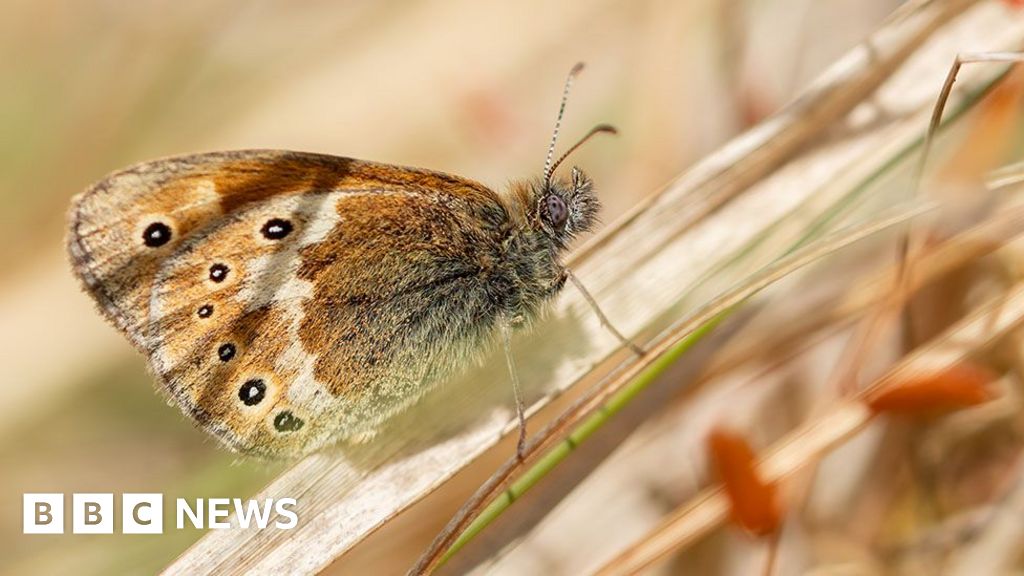A drive to bring back lost butterflies, crickets and dragonflies has been launched by the Lancashire Wildlife Trust (LWT).
The large heath butterfly, bog bush cricket and white-faced darter dragonfly were once common across Lancashire and Greater Manchester’s vast peat bogs and are important to the area’s eco-system.
They all live on the region’s lowland peatlands, 96% of which have been lost due to human activity, the LWT said.
“We’ve been working hard to restore the habitats these insects depend on, creating the right conditions for them to make their return,” the charity said.
The LWT said it had “laid the groundwork” through peatland restoration, rebuilding water systems and replanting specialist vegetation.
It has now appealed for £20,000 to complete the project.
“These insects all play vital roles in the peatland ecosystem, the conservation group said.
“The large heath butterfly pollinates plants including cross-leaved heath; the bog bush cricket helps break down decomposing plant matter and is a food source for birds; and the white-faced darter dragonfly is a key predator of smaller invertebrates, keeping insect populations in balance.
“So by reintroducing these insects, we’re not only supporting the future of their species, but helping to restore an entire ecosystem.”
Senior nature recovery officer Dr Matt McMullen added: “These species would struggle to recover on their own.
“Large heath butterflies find it hard to fly far from where they hatched, bog bush crickets have suffered from fragmented habitats, and white-faced darters need very specific conditions to support the early stages of life.
“We’re giving them the helping hand they need, but we can’t do it without public support.”





